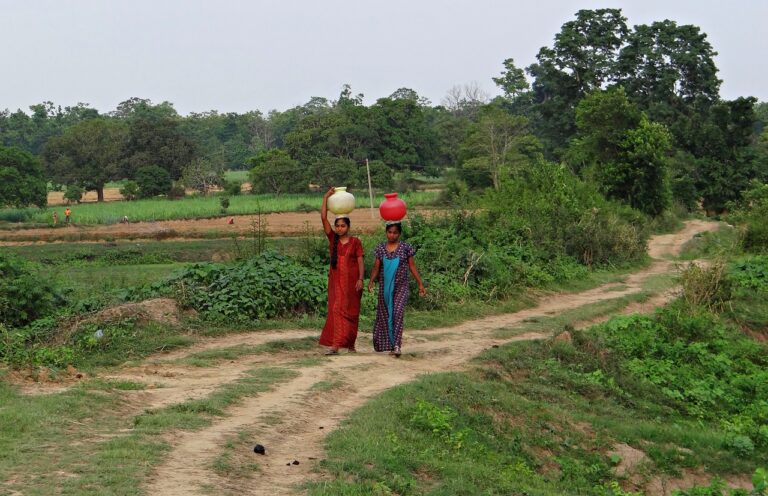Ethical Considerations in Political Event Management: Allpaanel com mahadev book, Playexchange99, Gold365 login
allpaanel com mahadev book, playexchange99, gold365 login: In today’s rapidly evolving political landscape, grassroots campaigns have become increasingly crucial in determining the outcomes of elections. These campaigns, which are driven by individuals at the local level rather than by large organizations or political parties, play a vital role in engaging voters, spreading messages, and mobilizing communities. In this article, we will delve into the importance of grassroots campaigns in elections and how they can make a significant impact on the democratic process.
What are grassroots campaigns?
Grassroots campaigns are political movements that are organized and driven by ordinary citizens rather than political elites or large institutions. These campaigns typically focus on engaging with individuals at the local level, building relationships within communities, and mobilizing supporters to take action. Grassroots campaigns often rely on volunteers, social media, and word-of-mouth communication to spread their messages and garner support.
The power of grassroots campaigns
Grassroots campaigns have the power to level the playing field in elections by allowing individuals who may not have access to large financial resources or political connections to make a meaningful impact. These campaigns can help amplify the voices of marginalized communities, bring attention to important issues, and hold elected officials accountable to their constituents.
One of the key strengths of grassroots campaigns is their ability to engage with voters on a personal level. By knocking on doors, making phone calls, and hosting events in local communities, grassroots campaigners can build trust and establish connections with voters that traditional campaign tactics may not be able to achieve. This personal touch can often be more persuasive than expensive advertisements or slick marketing campaigns.
Grassroots campaigns also have the potential to mobilize communities in ways that larger, more top-down campaigns cannot. By empowering individuals to take ownership of the political process and participate in campaign activities, grassroots campaigns can create a sense of shared purpose and solidarity among supporters. This sense of community can help drive voter turnout, increase awareness of important issues, and ultimately affect the outcome of an election.
Moreover, grassroots campaigns have the flexibility to adapt to changing circumstances and respond quickly to emerging issues. Because they are not beholden to the agendas of large organizations or political parties, grassroots campaigners can pivot their strategies, adjust their messaging, and mobilize resources at a moment’s notice. This agility can be a significant advantage in fast-paced and unpredictable political environments.
The role of technology in grassroots campaigns
In recent years, technology has played an increasingly important role in shaping grassroots campaigns. Social media platforms, email newsletters, and online fundraising tools have made it easier than ever for grassroots campaigners to connect with supporters, raise awareness, and mobilize resources. These digital tools have helped level the playing field for smaller campaigns and enabled individuals to make a meaningful impact without the need for a large budget or extensive resources.
Moreover, technology has allowed grassroots campaigns to reach a wider audience and engage with individuals who may not have been accessible through traditional campaign tactics. By leveraging the power of social media influencers, online communities, and digital organizing tools, grassroots campaigners can amplify their messages, expand their networks, and mobilize support on a scale that was previously unimaginable.
The importance of grassroots campaigns in elections
Grassroots campaigns are essential for ensuring that political power remains in the hands of the people rather than being concentrated in the hands of a few wealthy or well-connected individuals. By empowering ordinary citizens to participate in the political process, grassroots campaigns can help ensure that the voices of all community members are heard, not just those with the most resources or influence.
Furthermore, grassroots campaigns are vital for building a more inclusive and representative democracy. By engaging with diverse communities, amplifying the voices of marginalized groups, and addressing the needs of underserved populations, grassroots campaigners can help create a more equitable and just society. Grassroots campaigns can shed light on issues that are often overlooked by mainstream media and political elites, bringing attention to important social, economic, and environmental challenges that affect all members of society.
In conclusion, grassroots campaigns play a critical role in shaping the outcomes of elections, amplifying the voices of ordinary citizens, and fostering a more inclusive and participatory democracy. By empowering individuals to take action, build relationships, and mobilize communities, grassroots campaigns can make a significant impact on the democratic process and help create a more just and equitable society for all.
FAQs
Q: Are grassroots campaigns only effective in local elections?
A: While grassroots campaigns are particularly effective in local elections due to their focus on community engagement and personal relationships, they can also play a crucial role in state and national elections. Grassroots campaigns have the potential to mobilize supporters, raise awareness, and drive voter turnout at all levels of the political process.
Q: How can I get involved in a grassroots campaign?
A: Getting involved in a grassroots campaign is as simple as reaching out to local organizers, attending campaign events, and volunteering your time and skills. Grassroots campaigns are always looking for passionate individuals who are willing to lend their support and help make a difference in their communities.
Q: Do grassroots campaigns have a chance against well-funded opponents?
A: While well-funded opponents may have more resources at their disposal, grassroots campaigns have the advantage of being able to engage with voters on a personal level, build authentic relationships, and mobilize communities. Grassroots campaigns can often make up for their lack of financial resources with passion, dedication, and a strong sense of community spirit.
Q: What are some examples of successful grassroots campaigns?
A: Successful grassroots campaigns can be found in a variety of contexts, from local city council races to national presidential elections. Some notable examples include the civil rights movement, the women’s suffrage movement, and the Bernie Sanders presidential campaign. These campaigns were able to mobilize supporters, raise awareness, and effect change by engaging with individuals at the grassroots level and building broad-based coalitions of supporters.







